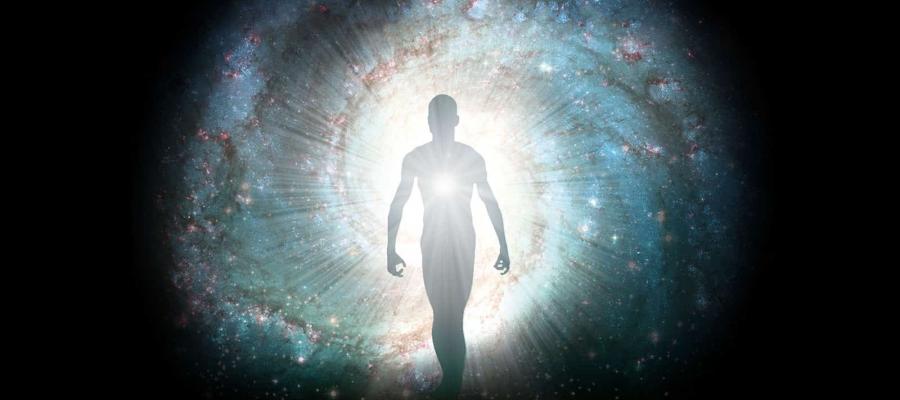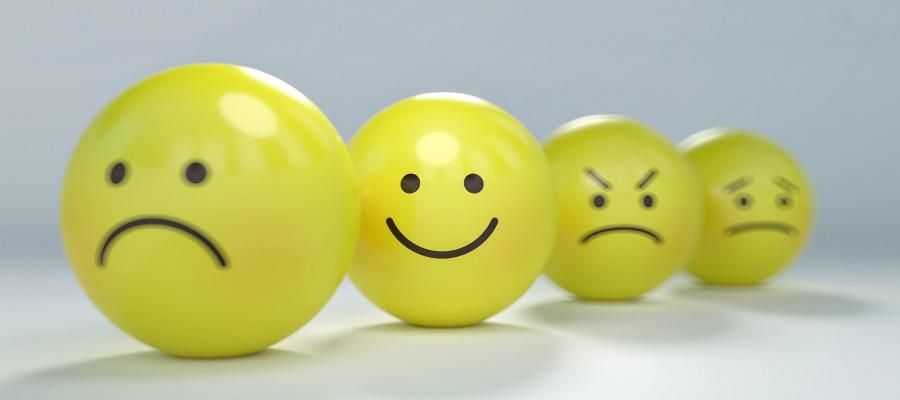[AUDIO] Why is Free Speech Important? (Ask a Comedian)
21
Feb 2017
Freedom of expression is something that we can easily take for granted - while it varies in degrees within democratic countries, most media personalities can say what they want without fear of legal backlash. Dissidence, vulagarity, and transgressive statements are generally permissible. However, what are the consequences when this is not the case? In this podcast of Free Speech Bites, Burmese comedian and filmmaker Zarganar shares his experiences of being silenced for controversial speech and explains why he sees freedom of expression as a significant issue to this day. [AUDIO LINK] And tune...
Read moreTackling Sexual Violence
07
Mar 2022
How do we achieve justice for victims of sexual assault? Can we change the legal system to make it more effective? Or should we turn to social media instead? This week, we're thinking about "#MeToo: Retribution, Accountability, and Justice." Rape and sexual abuse are long-standing problems in our society that are slow to change, but are slowly beginning to get the attention they deserve. Activist Tarana Burke coined the #MeToo hashtag in 2006, but it gained greater mainstream recognition in the US in 2017, as Hollywood came forward about famous men who had sexually abused them. ...
Read more#FrancisOnFilm: Thor Ragnarok
22
Nov 2017
Thor: Ragnarok is funny, exciting, and visually nifty. The third in a series (the first two were Thor in 2011 and Thor: the Dark World in 2013), it's a great two-plus hours of entertainment. But it's not just entertainment; there's more in Thor philosophically than you might think of when you are caught up in the action. Some of what's philosophically interesting about Thor comes from Norse mythology. Ragnarok is the Doom of the Gods. It may be cyclical rather than apocalyptic. And it may be spiritual rather than physical. Norse mythology, at least...
Read moreCan Technologies Be Monstrous?
08
Apr 2018
This year marks the 200th anniversary of Mary Shelley’s brilliant novel, Frankenstein. So it’s a good time to ask: can technologies be monstrous? Can human beings create devices and platforms that run beyond our intentions and out of our control? What dangerous technologies may be lurking on the horizon? And what, if anything, can we do to prevent them doing damage? These are difficult questions, and I feel we need to do some really careful thinking about them. I can’t agree with those who say that there’s nothing to worry about, and that any concerns one might raise are just “techno...
Read moreOneness is a Mystery
06
Apr 2016
Concepts such as infinity and oneness are problematic in terms of our capability to describe them accurately. While it can be argued that perception and language are always inaccurate representations of reality, we judge the fitness, accuracy and consistency of representations based on comparison and our concept of knowledge. For example, in mathematics we have a concept of unity that we call "one". The mathematical "one" can be identified as single object and is considered equal to or identical to the collection of components that together form the object. We consider this model to be an...
Read moreReincarnation
30
Apr 2015
This we're thinking about Reincarnation – past lives, and future selves. Maybe you don’t believe in reincarnation. But a lot of people have and still do. Schopenhauer said, "we find the doctrine [of reincarnation] springing from the earliest and noblest ages of the human race, always spread abroad on the earth as the belief of the great majority of mankind." Most Buddhists believe in reincarnation. And I’m told one out of four Americans today believe in it. It deserves to be taken seriously. But first we should get clear on exactly what we mean when we talk about reincarnation. Here’s...
Read more[VIDEO] Contrastivism—A Revolution in Philosophy?
21
Mar 2017
First proposed by Jonathan Schaffer, contrastivism is an alternative approach to traditional philosophical questions that aims to dissovle rather than solve philosophical puzzles. It claims that philosophers have not been explicit enough in their questions, suggesting instead that questions must be framed in relation to relative contrasts, which yields more complicated answers. Simply asking, "Did Person X perform ethically in Situation Y?" does not cut it for the the contrastivist! Walter Sinott-Armstrong of Duke University introduces contrastivism in...
Psychopathy and Evil
12
Jun 2017
There is a certain diagnosis considered rare and nearly untreatable in the mental health community: psychopathy. Of course, a small amount of psychopathy may be socially advantageous. Consider the cool and collected CEO or saw-toothed lawyer. However, extreme cases illustrated by the fictional Patrick Bateman of American Psycho or the not-so-fictional child, Samantha from the June 2017 issue of The Atlantic, reveal that psychopathy is not only chilling but highly dangerous. Psychopaths exhibit physiological abnormalities in addition to behavioral ones. As a result,...
Read more#FrancisOnFilm: Aquaman
05
Feb 2019
Can an action flick like Aquaman be philosophically interesting? I thought not as I left the theatre, although I had been entertained well enough by its gripping battle scenes and stunning scenery of the Australian Gold Coast (even if at nearly two and a half hours it runs a bit long). But then my husband chastised me for not thinking it was one of the most important environmentalist movies made in recent years. I thought he was joking until he convinced me to consider what it means to be an environmentalist movie and why Aquaman might be one. Aquaman features struggles between...
Is the Sentence Becoming Passé?
26
Jan 2020
In an age of emojis, memes, and reaction gifs, are complete sentences becoming passé? Do outmoded forms of writing deserve to die? Or could there be room for more than one kind of writing? On this week’s show, we’ll discuss the death of the sentence with Professor Jan Miezkowski, author of Crises of the Sentence. The Internet is constantly generating new forms of communication, and with them, new creative opportunities. Meme templates let anyone add a personal twist to a shared joke; emojis and reaction gifs re-contextualize images to give them new meanings in conversation; and...
Read more#FrancisOnFilm: Guardians of the Galaxy 2
13
Jun 2017
Like many other people—over $820 million worth of people in the US alone, according to the latest box office results I read while writing this post—I just saw Guardians of the Galaxy Vol. 2. It’s lots of fun—psychedelic colors, battles in space, and great ’70s music played on a Walkman. It also features an unhappy and ever-expanding brain masquerading as a planet and seeking world domination. And that’s a problem, a very big problem, for the guardians to solve. Without giving away too much of the plot about how the guardians encounter the evil brain (it’s a pretty thin plot anyway;...
Read moreWhat Do We Owe Future Generations?
13
Feb 2019
Exactly how much should we care about future generations? It seems obviously wrong to say that we shouldn’t care about them at all. We would not be doing justice by them if we decided to just live it up and let them figure out how to deal with whatever mess we left behind on their own. It also seems wrong to say that we should care about them as much as we do about ourselves. After all, they don’t even exist—at least not yet. Future generations are merely hypothetical, and hypothetical beings surely do not matter as much as existing beings. Right? It’s also worth noting...
Read moreRough Humor
29
Jan 2020
One current culture war in North American society concerns rough humor. I say “rough,” because I want to be neutral as to whether instances of it are also offensive, since whether this or that instance of it is offensive is one of the things at issue. Rough humor is a broad tent. But its jokes, skits, writings, cartoons, etc. all have something in common: they deal with culturally sensitive issues in a way that bumps into or violates taboos, such as taboos on using certain words, or on talking about or mocking certain things. Now unlike many, I don’t want to defend...
Read moreChildren as Philosophers
16
Dec 2010
While licking a pot, six-year-old Tim asks: "Papa, how can we be sure that everything is not a dream?" His father admits he has no idea. Tim says "Well, I don't think everything is a dream, ‘cause in a dream people wouldn't go around asking if it was a dream." That’s an example from Gareth Matthews, a philosopher who has gotten interested in the idea that children are natural philosophers; they ask interesting philosophical questions and come up with interesting answers. This week’s program was recorded at the Northwest Center for Philosophy for Children. We talk with the founder and...
Read moreThe First Annual Dionysus Awards
12
Jan 2009
Philosophy Talk is initiating a new movie award. I know; I know. Do we really need yet another movie award? We've got the Oscars; the Golden Globe; the National Society of Film Critics, the People's Choice Awards .... So what's the point of another, you ask? Well, it's fun to talk about movies -- at least the good ones. But more importantly, nobody really explicitly applauds movies for their philosophical merits -- though filmmaking can sometimes be a highly philosophical art form. So why not an award that does just that? ...
Read moreTransformative Experiences
15
Nov 2014
This week, our topic has to do with so-called transformative experiences. Some events in a person’s life are so powerful, so life-altering, that there’s a sense in which he or she may not be the same person before and after the event. Now I’m not talking about winning a mega-lottery, for example. Doing that would, of course, change my life. I could buy more stuff. Maybe I would work less. Certainly, I would travel more. Those kinds of changes aren’t really what we have in mind, though. Those are just changes in the external...
Read moreWhat Is (This Thing Called) Love?
20
Apr 2012
Many of us have been in love, and there have been countless great poems and popular songs written about it. So you’d think we’d all know what it is. Yet a lot of what has been written points to a deep mystery. So—as Cole Porter famously asked—what is this thing called love? Love is often portrayed as a powerful force, something that can inspire greatness in the lover. Alternatively, it is something that can make the lover act like a fool. Love can be the greatest feeling in the world, but it can also be utterly devastating when it doesn’t work out. How many love songs are...
Read moreThe Costs of War
02
Oct 2005
Following the attacks of September 11, 2001, the New York Times did its best to run an informative obituary of each of the victims, those at the World Trade Center, the Pentagon, and in the airplanes that were hijacked. So there were in the neighborhood of 2000 of these obituaries. Reading them, day after day, made a very deep impression. To lose your life is a bad thing for the victim; philosophers may have a little bit of difficulty agreeing as to exactly why, since one is alive until the loss, and so hasn't incurred it, and dead afterwards, and so in some sense...
Read more[VIDEO] So You Think You Can Know?
15
Mar 2017
What does it mean to know something? I know my own name, surely. And I know that I am writing this at this very moment. Most of us feel comfortable saying we know many things—we say so in everyday life all the time. However, what does it really mean to know, rather than just think or believe? Can we establish strict rules for what constitutes knowledge and what does not? Our upcoming show, What We Know—And What We Don't, delves into some of these questions. Until then, get up to date with the basics of Theory of Knowledge in this informative video, courtesy of Jennifer...
When Do False Beliefs Exculpate? (Pt. II)
08
Jan 2021
For last month’s pandemic puzzle, I posed the title question of this blog, noting that I meant it in a moral sense (rather than a legal one): When do false beliefs exculpate? The idea is that sometimes having a false belief exculpates one of a wrongdoing, but other times not—and perhaps even the opposite. My example of a false belief that does exculpate was a vet who accidentally puts down the wrong dog, because it looks almost identical to the one she was in fact supposed to put down: maybe she was careless (which is bad), but her false belief about the identity of...
Read moreThe Politics of Architecture
06
Oct 2023
Do buildings express political viewpoints? Some buildings do, of course: think about monuments to fallen soldiers, city hall buildings, or public housing. But is architecture always political? When it comes to pretty buildings, isn’t a flying buttress sometimes just a flying buttress? Clearly, there’s plenty of architecture that makes political statements (as monuments do) or implies political positions (as city halls do). Think of all that neoclassical architecture imperialists love so much: impressive columns, high ceilings, huge steps where the...
Read moreThe Temptation to Feel Baffled
16
Feb 2018
Yet another school shooting. This one happened on Valentine’s Day in Parkland, Florida, an otherwise attractive suburb north of Ft. Lauderdale. 19-year-old Nikolas Cruz, who has since confessed, carried an AR-15 assault-style rifle into Marjory Stoneman Douglas High School, from which he had been previously expelled, and murdered 17 people—14 students and three staff members—injuring several dozen others. Cruz had a history of strange behavior, including attacking squirrels and chickens. He had had disciplinary problems in school as well—hence the expulsion. He seems to have been affiliated...
Read moreFailing Successfully
08
Aug 2018
To say that a person can fail successfully sounds really weird. To succeed at something is to achieve some goal that you’re aiming at, and to fail at something is to not achieve a goal that you were trying to achieve. I might succeed or fail at bench-pressing my body weight. I succeed if I try to bench-press my body weight and manage to do it, and I fail if I try to do it but don’t succeed. So, success and failure seem to be incompatible. But this isn’t the end of the story. In fact, it’s just a short-sighted and pedantic beginning. If we loosen up and shift perspective a little bit,...
Read moreSpinoza
05
Nov 2015
Baruch Spinoza is sometimes called “the father of modernity.” Spinoza, along with Descartes and Leibniz, is considered one of the great rationalists of the 16th and 17th centuries. Of the three of them, Spinoza was philosophically the most radical. Both Descartes and Leibniz found a place in their systems for something like the traditional Judeo-Christian God, a personal God, who created the rest of us. Spinoza denied the authority of the Bible, the Judeo-Christian idea of a transcendent God, and opened the door to the secular philosophy of the modern age....
Read morePhenomenology
20
Apr 2017
Husserl founded phenomenology a century ago. Many important philosophers are phenomenologists, like Heidegger, Merleau-Ponty, and Sartre. But What in the world is phenomenology? Let’s start with the word. In the relevant sense, “phenomenon” means something observed, for which one wants to know the unobserved cause or explanation. For example, glaciers are an interesting phenomenon. But where did they come from? The phenomenological move is to say, “Let’s study the phenomenon itself first, and leave the explanation aside, at least for the time being. But of course Husserl wasn’t...
Read more


















